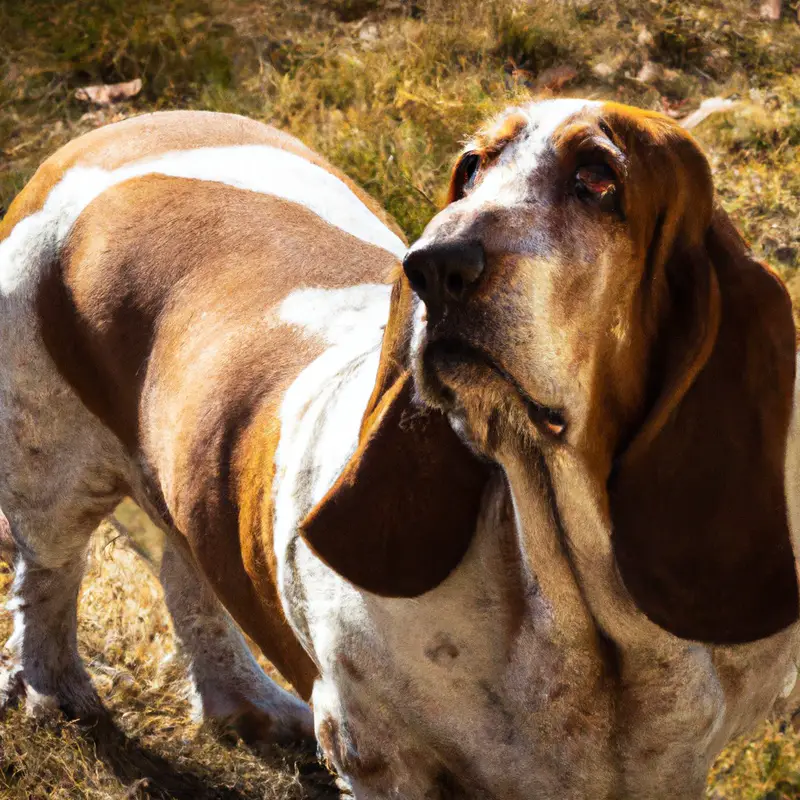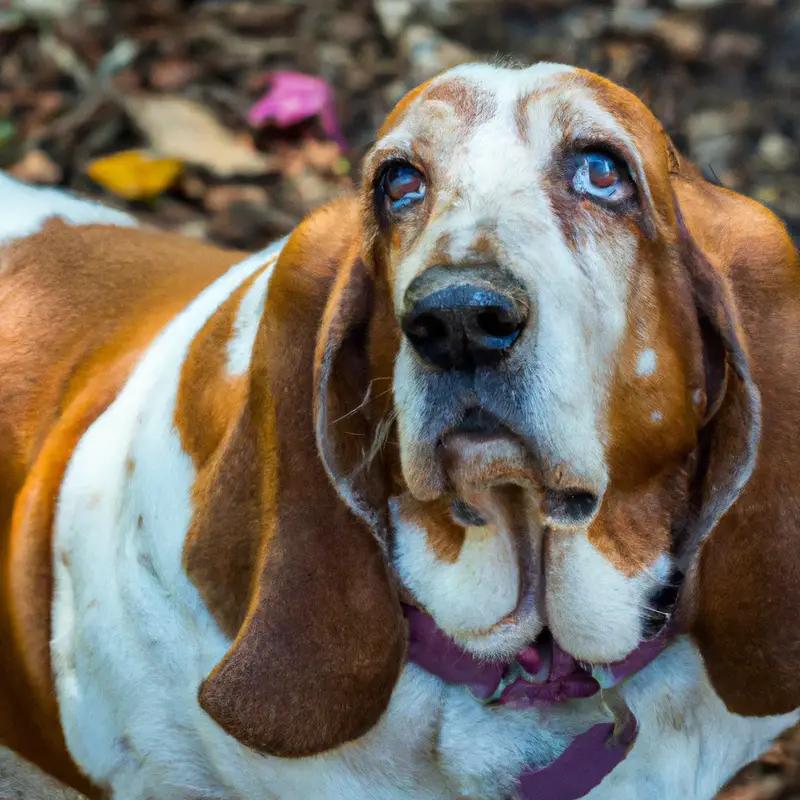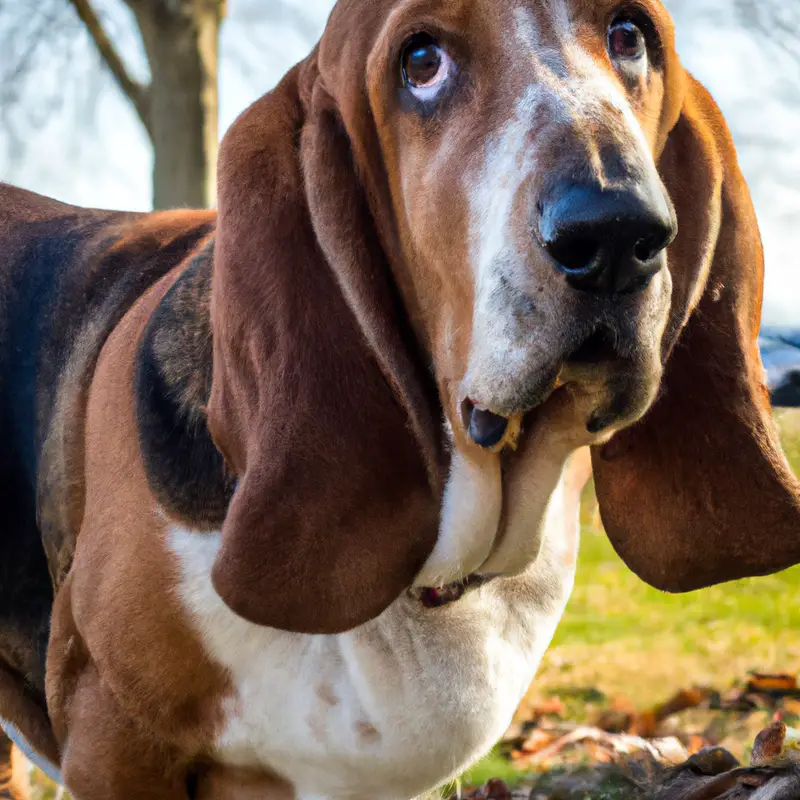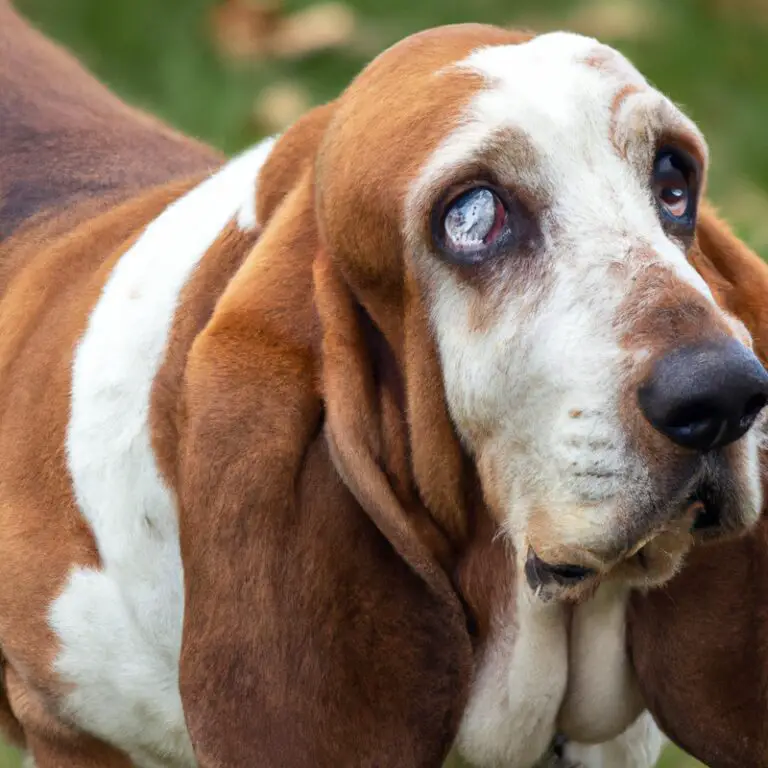How Do Basset Hounds Handle Being Left Alone For a Remote Research Expedition?
Key Takeaways:
- Basset Hounds may struggle with being left alone for remote research expeditions due to their strong attachment to their owners.
- These dogs are prone to separation anxiety, which can lead to destructive behaviors when left alone for extended periods.
- Basset Hounds require regular exercise, mental stimulation, and a consistent routine to help alleviate their anxiety and prevent behavioral issues.
- Proper training, socialization, and providing engaging activities can help Basset Hounds cope with being left alone during remote research expeditions.
Are you planning a remote research expedition but worried about leaving your beloved Basset Hound behind?
As a passionate dog lover and experienced pet owner, I understand the concerns that often accompany leaving our furry friends alone for extended periods.
Basset Hounds, known for their droopy ears and soulful eyes, have unique characteristics that can affect how they handle being left alone.
In this article, we’ll explore their temperament, the potential for separation anxiety, and provide practical tips and techniques to help ensure your Basset Hound feels safe, secure, and entertained during your absence.
So grab a cup of coffee and let’s dive in!
| Pros | Cons | |
| Adaptability | Basset Hounds are adaptable and can adjust to different situations. | Basset Hounds may become anxious or distressed when left alone for extended periods of time. |
| Independence | Basset Hounds are generally independent and can be left alone for moderate amounts of time. | Basset Hounds, being a pack-oriented breed, may struggle with separation anxiety when left alone for longer durations. |
| Exercise Requirements | Basset Hounds have moderate exercise needs and can be content with indoor activities. | Basset Hounds need daily exercise and mental stimulation to prevent boredom and destructive behaviors when left alone. |
| Training | Basset Hounds can be trained to handle being alone through positive reinforcement techniques. | Basset Hounds may have a stubborn streak, which can make training challenging for some individuals. |
| Companionship | Basset Hounds thrive on human companionship and may struggle with prolonged solitude. | Leaving a Basset Hound alone for an extended research expedition may not be ideal due to their need for companionship. |
Common Characteristics of Basset Hounds
Understanding the Temperament of Basset Hounds
Basset Hounds have a unique temperament that sets them apart from other breeds.
They are known for being laid-back, gentle, and sociable dogs.
Bassets are generally good-natured and get along well with other pets and children.
They can be a bit stubborn at times but are also very loyal and affectionate.
It’s important to provide them with plenty of exercise and mental stimulation to prevent boredom.
Understanding their temperament will help you better care for your Basset Hound and ensure they are happy and content.

Basset Hounds and Separation Anxiety
Basset Hounds are known to be prone to separation anxiety. They form strong bonds with their owners and can become distressed when left alone for long periods.
Symptoms may include destructive behavior, excessive barking, and soiling in the house.
To help your Basset Hound cope with separation anxiety, it is important to gradually increase alone time, create a safe environment, and provide mental stimulation. Tools such as puzzle toys and anxiety wraps can also be beneficial.
If needed, consult a veterinarian or animal behaviorist for professional guidance.

Preparing Your Basset Hound for Being Left Alone
Gradually Increasing Alone Time
Gradually increasing alone time is an essential step in preparing your Basset Hound for being left alone.
Start by leaving your dog for short periods, and gradually increase the duration over time.
This helps your Basset Hound adjust and build confidence.
Make sure your dog has a safe and comfortable space to stay in during alone time.
Provide toys and mental stimulation to keep them occupied.
With patience and consistency, your Basset Hound will become more comfortable being alone.
Creating a Safe and Comfortable Environment
To create a safe and comfortable environment for your Basset Hound when being left alone, there are a few key things to keep in mind. Firstly, make sure the area is free of any hazards or potential dangers.
Keep toxic substances, sharp objects, and small items out of their reach.
Providing a comfortable bed or crate with soft bedding can give them a cozy spot to rest. Additionally, consider leaving some interactive toys or puzzles to keep their minds occupied.
Remember to also provide access to fresh water and ensure the temperature in the room is suitable for their comfort.
Providing Mental Stimulation and Entertainment
Basset Hounds are intelligent and active dogs, so it’s important to provide them with mental stimulation and entertainment when they’re left alone. Here are some ideas to keep your Basset Hound engaged and entertained:
- Interactive toys: Look for puzzle toys and treat dispensers that require your dog to figure out how to get a treat or toy out of them.
- Chew toys: Provide your Basset Hound with plenty of chew toys to keep them occupied and prevent destructive chewing.
- Hide and seek: Hide treats or toys around the house for your dog to find while you’re gone.
- TV or music: Leave the TV or radio on for some background noise, which can provide comfort and entertainment for your dog.
- Rotating toys: Rotate your dog’s toys every few days to keep their interest and prevent boredom.
Remember to always prioritize your Basset Hound’s safety, and never leave them unsupervised with toys or objects that could pose a choking hazard.
Implementing a Routine for Your Basset Hound
Establishing Regular Feeding and Exercise Patterns
Establishing regular feeding and exercise patterns is essential for the well-being of your Basset Hound.
Start by creating a consistent schedule for meals and stick to it.
This helps regulate their appetite and prevents overeating.
For exercise, Basset Hounds are fairly active dogs, so daily walks and playtime are crucial to keep them physically and mentally stimulated.
Consider incorporating interactive toys or training sessions during exercise time to engage their intelligent minds.
Remember, a consistent routine helps your Basset Hound feel secure and reduces anxiety.
Incorporating Interactive Training Sessions
To keep your Basset Hound mentally stimulated and engaged, incorporating interactive training sessions is essential.
These sessions not only provide mental stimulation but also strengthen your bond with your dog.
During these sessions, you can focus on basic commands like sit, stay, and come, and also introduce fun tricks.
Use positive reinforcement techniques like treats and praise to motivate your Basset Hound.
Remember to keep the training sessions short and frequent, and always end on a positive note.
Happy training!
Setting Aside Quality Time Before and After Absences
Setting aside quality time before and after absences is essential for your Basset Hound’s well-being. It helps establish a strong bond and provides comfort during periods of separation.
Before leaving, engage in activities your dog enjoys, such as playtime or a walk.
After returning, give them attention and affection to reassure them. This dedicated time creates a sense of security and helps alleviate any stress or anxiety caused by your absence.
Remember, your Basset Hound relies on you for companionship, so make these moments count.
Using Tools and Techniques to Help Basset Hounds Cope
Using Puzzle Toys and Treat Dispensers
Using puzzle toys and treat dispensers can be a great way to keep your Basset Hound entertained and mentally stimulated while you’re away. These interactive toys challenge your dog to work for their treats, keeping them engaged and occupied.
Puzzle toys come in various designs and difficulty levels, allowing you to find the perfect match for your dog’s abilities.
Treat dispensers, on the other hand, reward your dog with treats for their efforts. Both options can help alleviate boredom and anxiety, making your Basset Hound’s time alone more enjoyable.
Exploring Calming Aids, Such as Anxiety Wraps or Music
If you’re looking for ways to help your Basset Hound feel calmer when left alone, exploring calming aids like anxiety wraps or music can be helpful.
Anxiety wraps, such as Thundershirts, provide gentle pressure that can help your dog feel secure and reduce anxiety.
Playing calming music or white noise can also create a soothing environment.
Remember to choose music specifically designed for dogs, as it can have a calming effect on their nervous system.
Considering Pet Cameras and Remote Treat Dispensers
If you’re looking for ways to keep an eye on your Basset Hound and provide them with treats while you’re away, pet cameras and remote treat dispensers can be great options.
Pet cameras allow you to check in on your dog and see what they’re up to, while treat dispensers enable you to remotely reward your Basset Hound for good behavior or simply give them a treat to keep them happy.
These tools can help alleviate separation anxiety and provide mental stimulation for your furry friend.
Just make sure to choose a reliable and user-friendly device that suits your needs.
Seeking Professional Guidance if Necessary
Consulting a Veterinarian or Animal Behaviorist
If you’re concerned about how your Basset Hound will handle being left alone for a remote research expedition, consulting a veterinarian or animal behaviorist can be a great idea.
These professionals have the knowledge and experience to provide guidance on managing your dog’s anxiety and ensuring their well-being while you’re away.
They can offer personalized advice and recommend strategies specific to your Basset Hound’s needs.
Don’t hesitate to reach out to them for expert support.
Exploring Doggy Daycare or Dog Walking Services
If you’re concerned about leaving your Basset Hound alone for extended periods, exploring doggy daycare or dog walking services can be a great solution. Doggy daycare provides a supervised and interactive environment where your furry friend can socialize and play with other dogs.
Dog walking services offer regular exercise and companionship for your Basset Hound during the times you can’t be there.
These services can help alleviate boredom and separation anxiety, ensuring your dog stays happy and healthy while you’re away.

Final Verdict
Basset Hounds can struggle with being left alone for extended periods, but with the right preparation and care, they can adapt and cope.
Understanding their temperament and addressing separation anxiety are crucial steps in ensuring their well-being.
Gradually increasing alone time, creating a safe environment, providing mental stimulation, and implementing a routine can greatly help in easing their anxiety.
Additionally, utilizing tools such as puzzle toys, calming aids, and pet cameras can provide additional support.
If needed, seeking professional guidance from a veterinarian or animal behaviorist can offer tailored solutions.
Remember, while Basset Hounds may find being alone challenging, with patience and proper care, they can thrive even during your remote research expedition.







